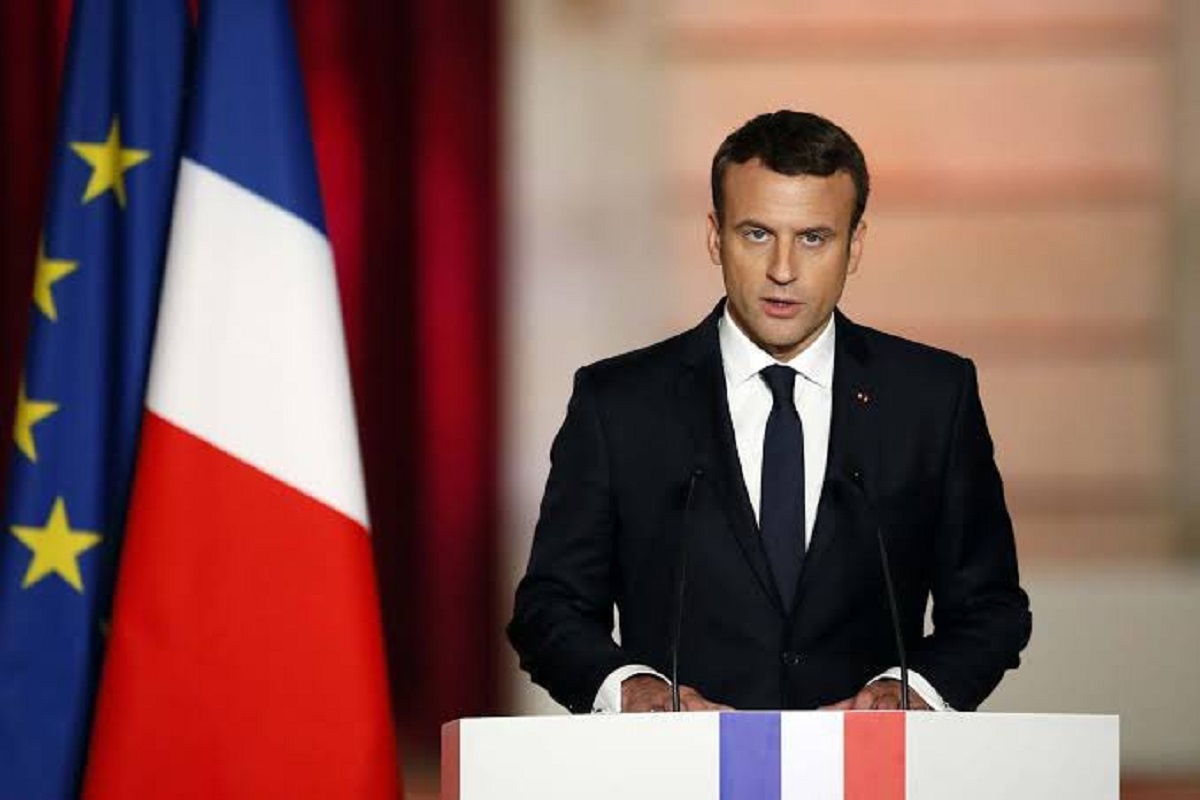Iran rejects Macron’s accusation of involvement in Ukraine conflict
Iran has rejected French President Emmanuel Macron's remarks that Russia has used Iranian military equipment against Ukraine.
France is witnessing significant unrest as thousands protest President Emmanuel Macron’s appointment of Michel Barnier as the new Prime Minister.

French President Emmanuel Macron (Twitter photo)
France is witnessing significant unrest as thousands protest President Emmanuel Macron’s appointment of Michel Barnier as the new Prime Minister. The demonstrations, reportedly occurring in 130 locations, reflect deep dissatisfaction with Mr Macron’s decision, which many view as a disregard for democratic norms. The protests erupted after Mr Macron, facing a hung Parliament from July’s election, appointed Mr Barnier, a conservative figure known for his role as the European Union’s Brexit negotiator.
Left-wing parties, particularly Mr Jean-Luc Mélenchon’s France Unbowed (LFI), accused Mr Macron of undermining electoral outcomes and neglecting the will of the electorate by sidestepping the New Popular Front (NFP), which had emerged as the largest party. Mr Barnier, who is now tasked with forming a government, faces an uphill battle. His centre-right Les Républicains party holds only a minor share of parliamentary seats, intensifying the challenge of enacting reforms and passing critical legislation, including the 2025 budget. His initial actions, including a visit to a struggling Paris hospital, highlight his awareness of urgent public demands but also underscore the precariousness of his position.
Advertisement
Amid the protests, France’s economic pressures add a layer of urgency to Mr Barnier’s challenges. The country faces scrutiny from the European Commission and bond markets to address its deficit. This economic backdrop complicates Mr Barnier’s task of navigating political unrest while implementing necessary fiscal reforms. Public sentiment, already strained by Mr Macron’s controversial choice, is exacerbated by fears of austerity and increased immigration controls, which Mr Barnier’s critics predict will be central to his agenda. The protests, involving around 300,000 participants nationwide, signal a broader discontent with Mr Macron’s leadership style. Critics argue that Mr Macron’s choice reflects a betrayal of democratic principles, as he chose Mr Barnier over the leading party from the elections. Polls reveal that a significant majority of the French population perceives Mr Macron’s actions as dismissive of democratic values, with accusations of electoral theft gaining traction.
Advertisement
The political landscape is further complicated by Mr Barnier’s need to navigate government formation amidst potential no-confidence votes from both the NFP and the far-right National Rally (RN). The RN, despite offering conditional support, has positioned itself as a pivotal force in Mr Barnier’s government, effectively holding significant sway over its stability. As Mr Barnier continues consultations and strives to build a functional administration, the political climate remains tense. The unfolding situation underscores the challenges Mr Macron faces in reconciling differing political factions and addressing public grievances while maintaining governance effectiveness. Mr Macron’s decision to appoint Mr Barnier could have long-term implications for his presidency and political legacy. The widespread protests and accusations of electoral manipulation may erode public trust in Mr Macron’s administration and embolden opposition forces. As Mr Barnier struggles to form a stable government and garner legislative support, Mr Macron’s leadership will be scrutinised for its ability to address the profound discontent and political fragmentation now challenging his presidency.
Advertisement